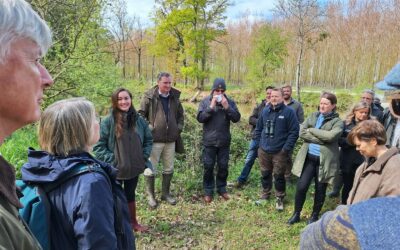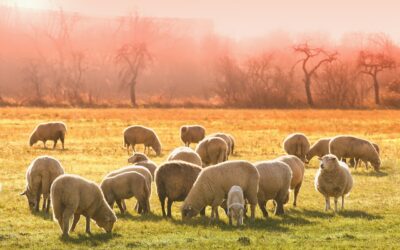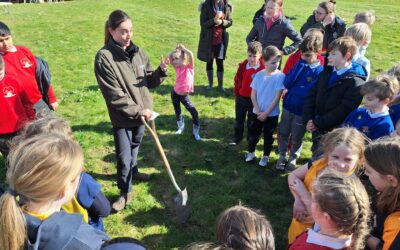Recently I wrote about my visit to Kingsclere Estates to meet Tim May, one of Britain’s leading practitioners of regenerative agriculture. You can read that piece in Sublime Magazine, but I wanted to give you even more of a flavour here of my visit and some of the brilliant things Tim’s doing on his farm.
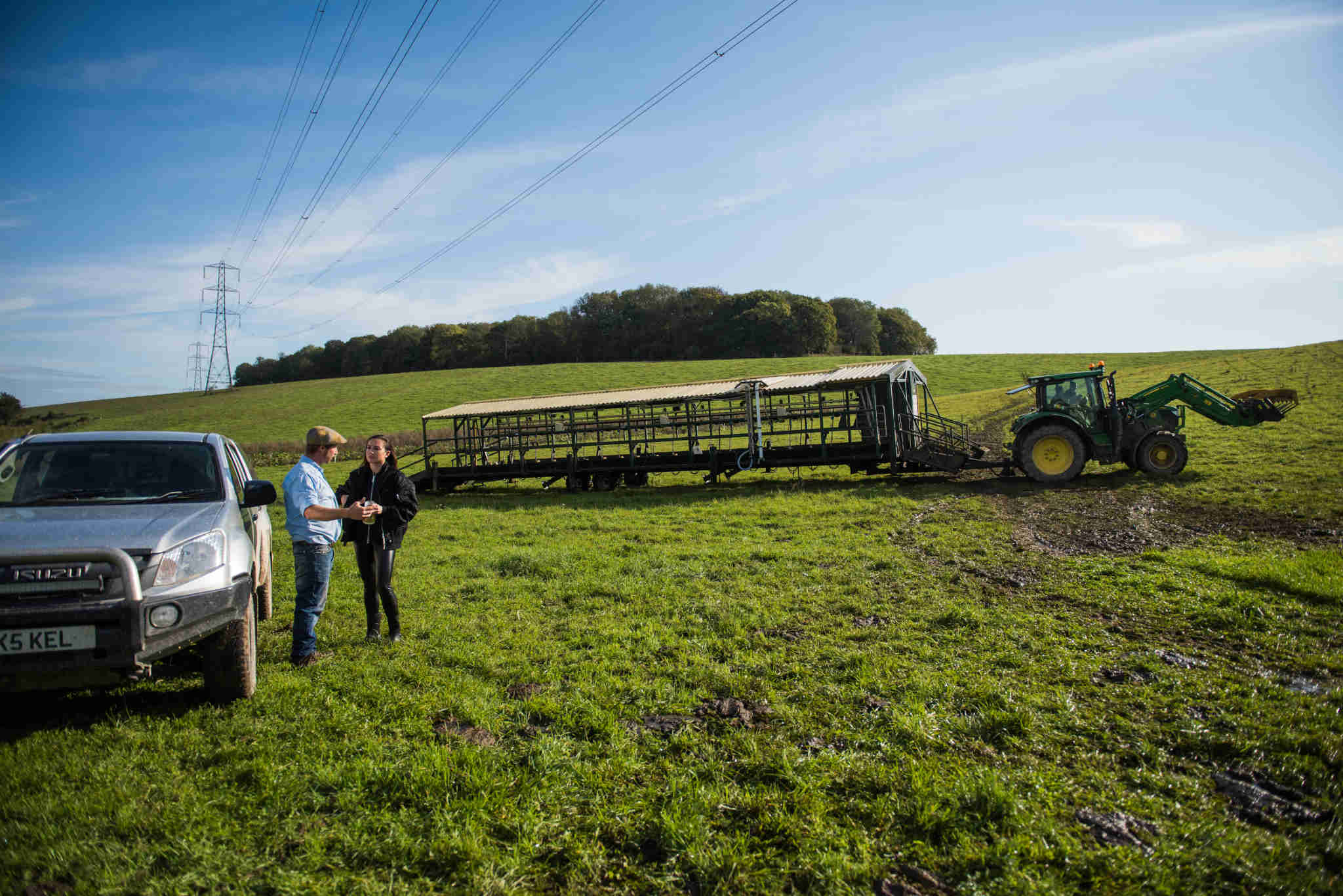
First, the dairy on wheels! Cows saddle up to the milking station in the open air and come straight off the platform back into the open field, where they can fertilise the land. There’s no need for onerous shifting of manure from the milking station to the field, when it loses much of its nutrients. There’s no need for chemical fertilisers that pollute the land. It’s about producing high-quality milk, while keeping nature intact.
And Tim kindly gave me a little bottle (well, coffee jar) of my own to take home, straight from the source. It’s gorgeous, creamy milk that is actually perfect for making butter with. Farm to table indeed!
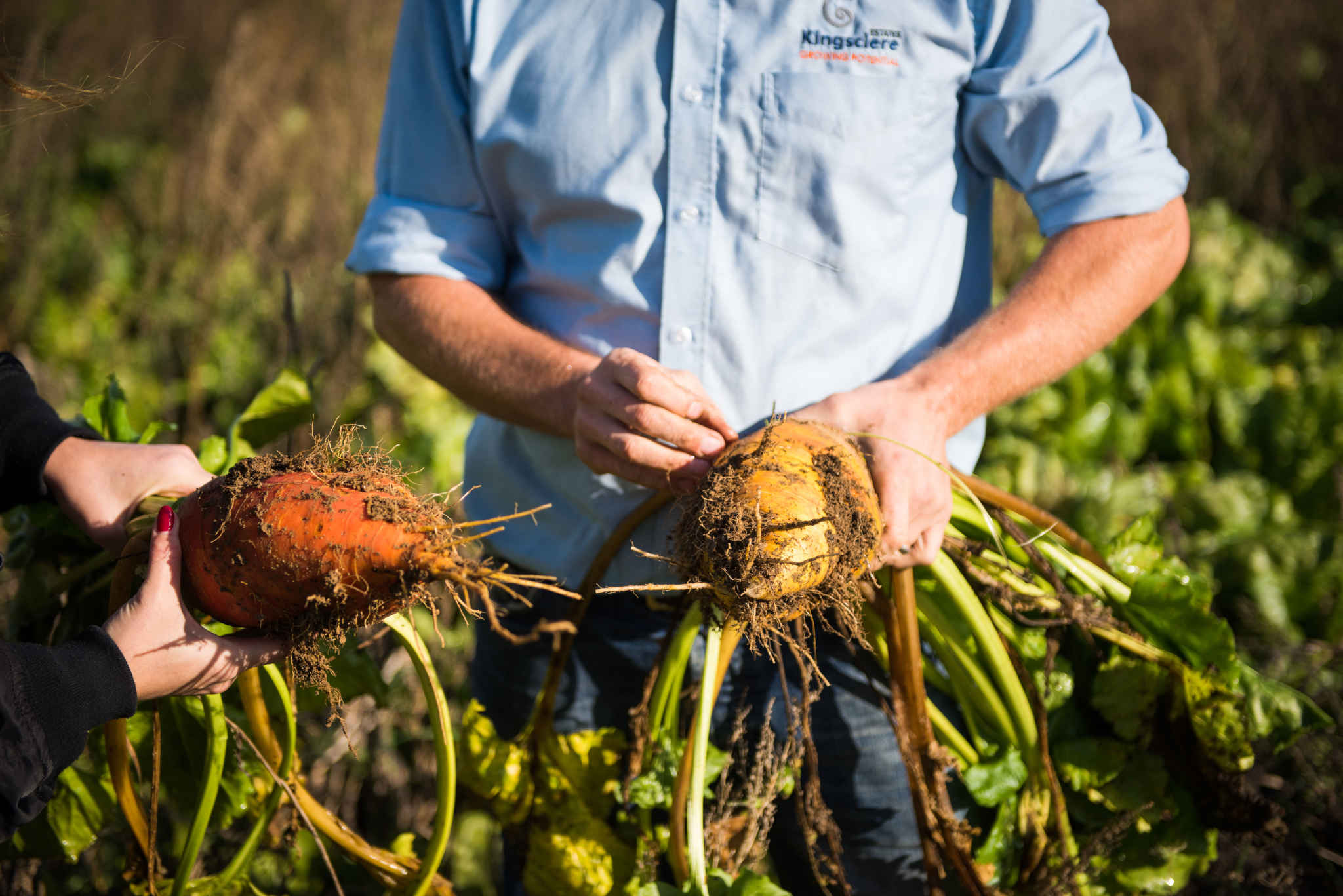
Just next to the mobile dairy station, Tim showed me some of the ways he keeps the cows well fed over the winter months. With less food on the ground for the cows to eat, it’s important there’s a good amount stored for when the weather turns. And what better place than keeping it in nature’s pantry, the ground itself. Tim pulled these extraordinary sugar beets out the ground, which have so much sucrose in them, they are actually far too sour for humans to eat, but cows love them.
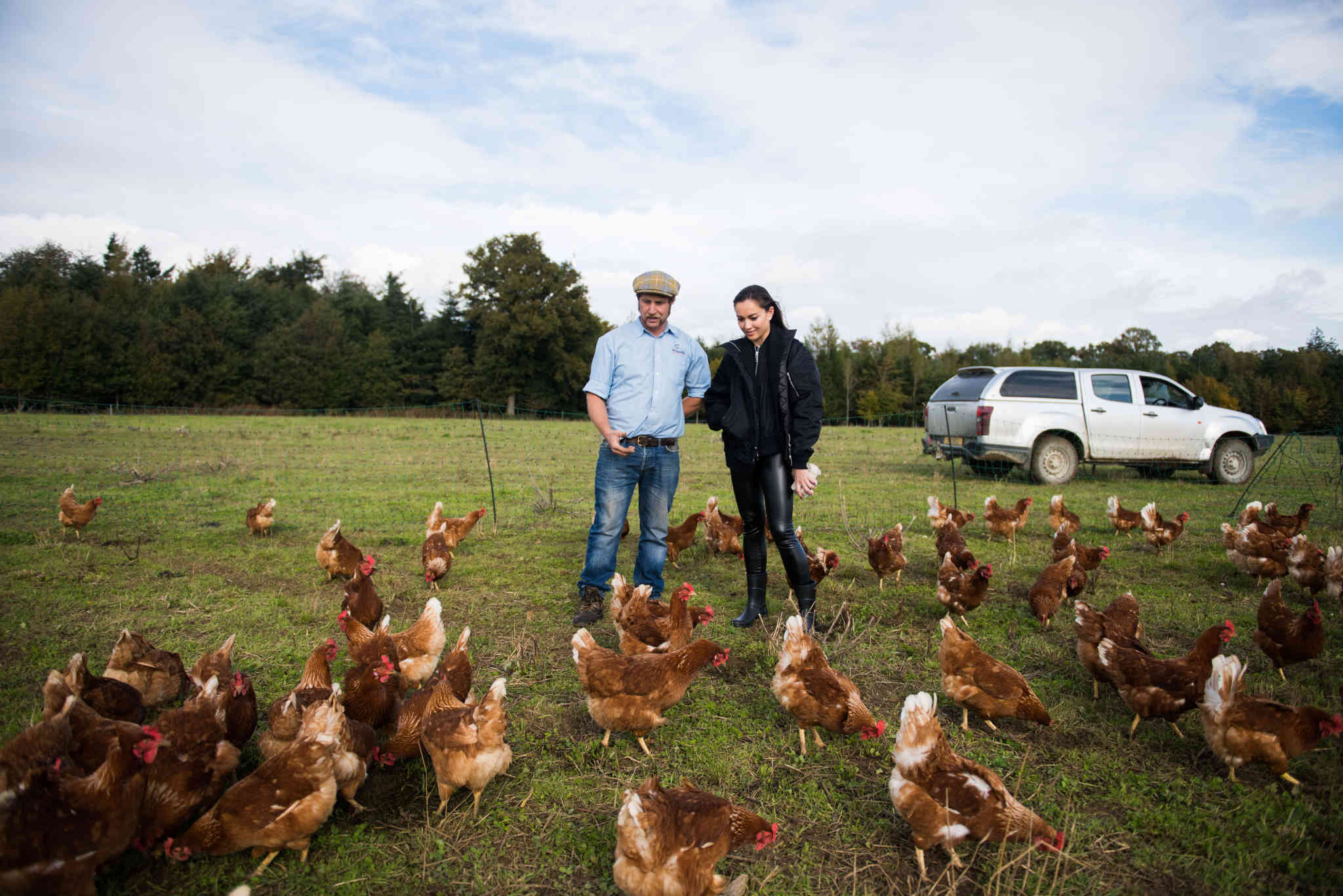
Tim also has a couple of mobile chicken coops which serve a similar purpose to the mobile milking station, following where the cows have been. 600 nomadic chickens spend their lives hopping from field to field on Tim’s farm. And as you can see, they were more than happy to welcome us to their temporary home.
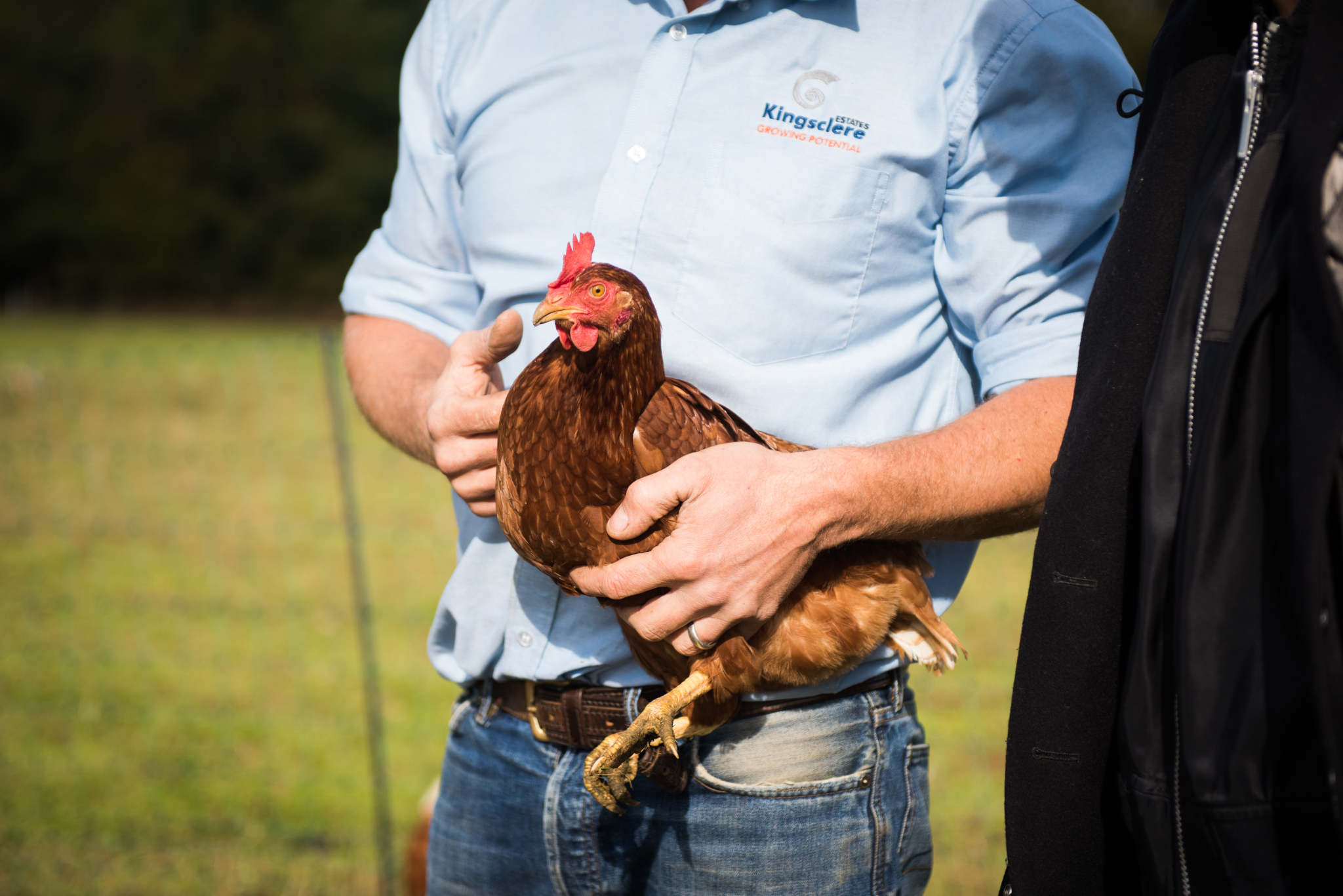
The chickens pick at the cow dung, helping the nutrients to penetrate the soil and eating protein rich flies and larvae which live inside it – in turn, helping the chickens themselves to produce valuable minerals that fertilise the soil. It’s all part of trying to create closed-loop food systems where the animals interact with each other and the land to regenerate the soil.
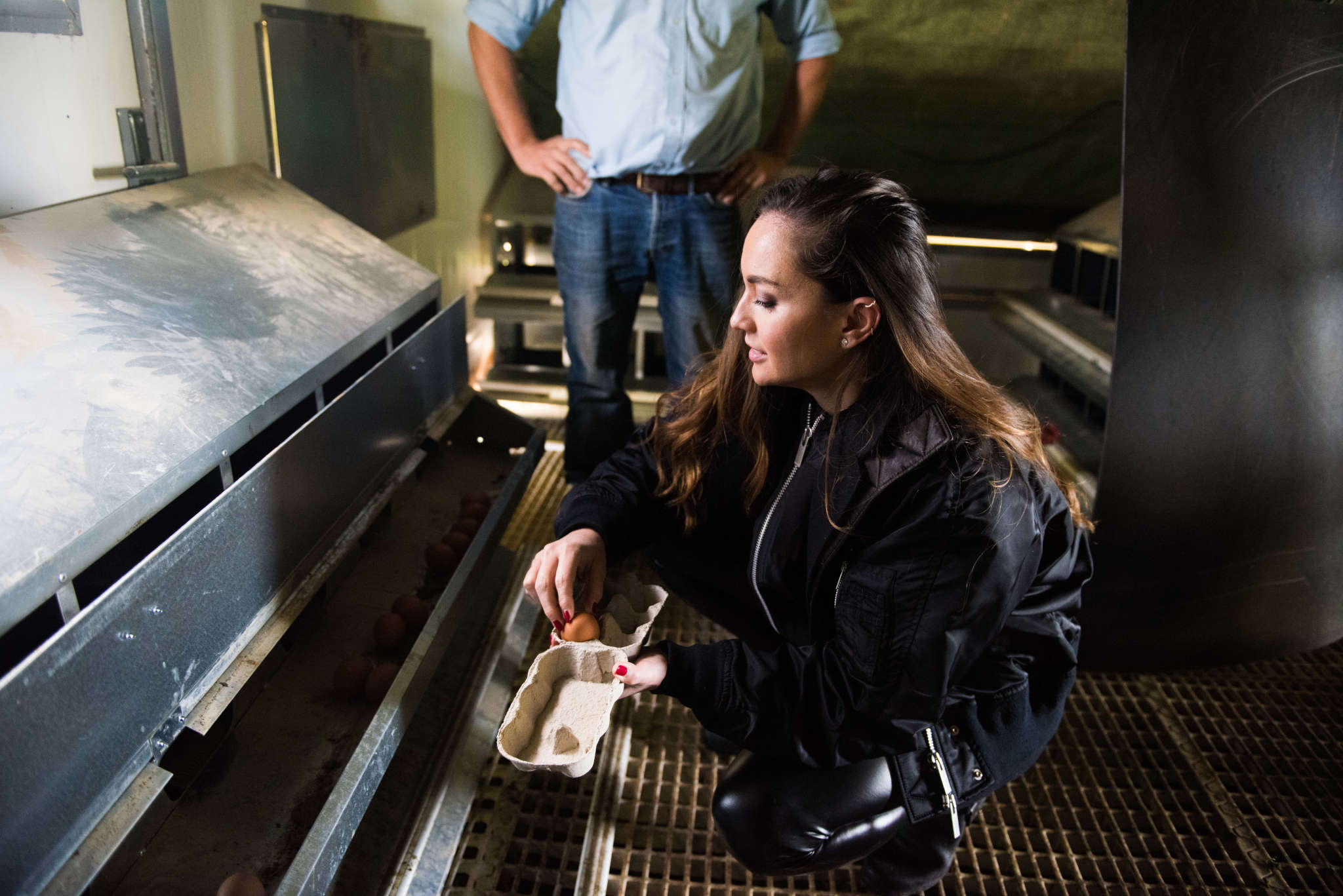
Tim’s chickens are some of the healthiest and happiest you can imagine, eating a varied diet from fields all around the farm. As a result, they make delicious, highly nutritious eggs – nothing tastes quite like truly free-range hen eggs. His hens are living proof that looking after the land isn’t only good for the environment, it’s good for us too.
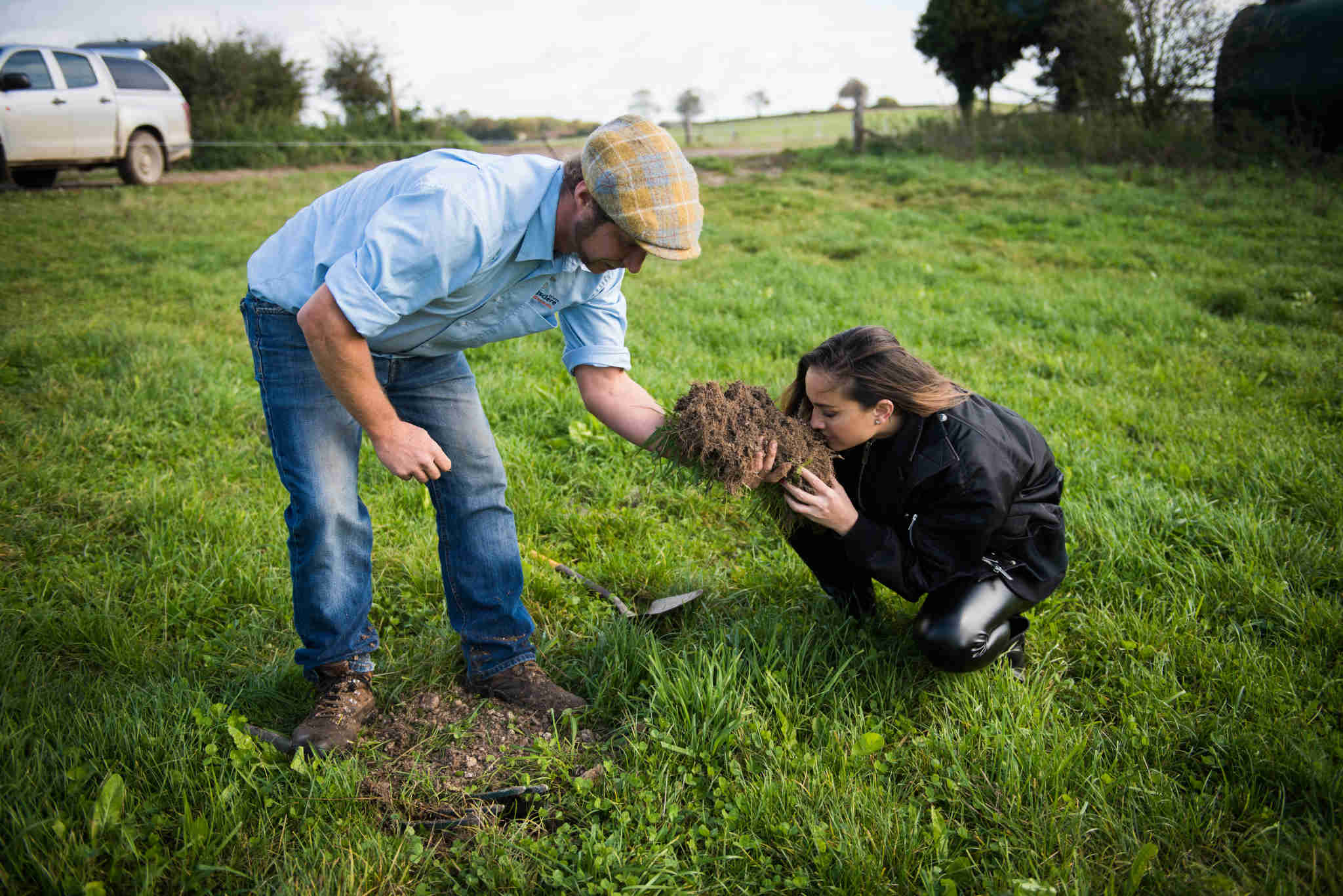
The soil, the soil, the soil. Every farmer you meet, and Tim is no different, will tell you that nurturing healthy soil is the key to regenerating the land. He is so passionate about all the life that is teeming underneath us – he even introduced me to the art of getting up close and personal with it, using all the senses to understand the quality of the soil.
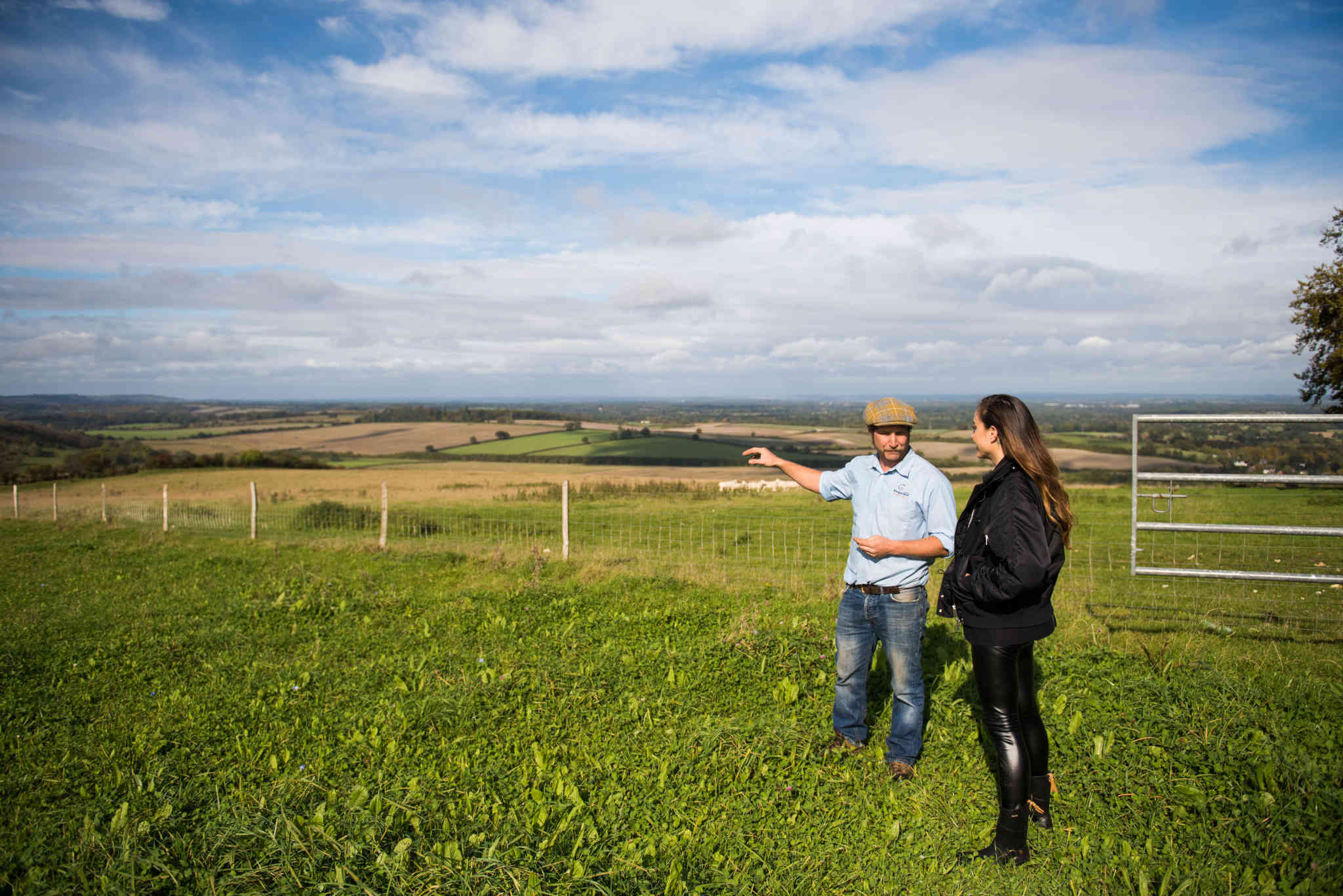
For Tim, every field has its own character – different ages of grass, with different varieties of plant and soil textures – and he knows each one of them like they’re the elder statesmen of some ancient kingdom beneath our feet. Tim is always keen to emphasise that his farm sits in an a much wider ecosystem bound up in the local community. Understanding the history of the area gives so much meaning to the work he is doing. Here Tim was explaining to me the origins of Watership Down lie in the valley below, something that I will be very happy to relay to my children.
I’d like to give Tim a huge thank you for being so welcoming and generous with his time in showing me around his farm. He’s an inspiring farmer and a wonderful character – I learned a huge amount about regenerative farming, how it works and, crucially, why it’s so important. Please do have a look at his excellent website if you’d like to know more about his work at Kingsclere Estates or the regenerative approach he’s taking.


